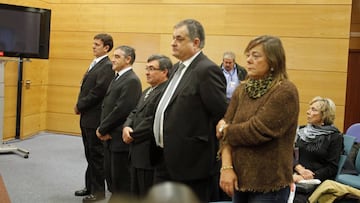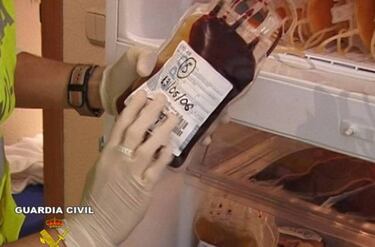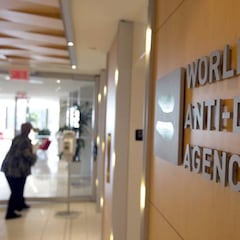WADA unable to conclude the Operación Puerto doping case
One year after blood bags were handed over, World Anti-Doping Agency lawyers refuse to reveal identities of athletes involved for fear of damages claims.</br><a title="Nadal vs Thiem live online: 2018 French Open final" href="https://en.as.com/en/2018/06/10/other_sports/1528633526_195806.html">Nadal vs Thiem live online: 2018 French Open final</a>

The Operación Puerto doping case commenced on 23 May 2006. Over a decade later, and one year to the day when Madrid’s High Court delivered its final verdict, the five accused in the scandal - Eufemiano Fuentes, Yolanda Fuentes, Manolo Saiz, Vicente Belda and José Ignacio Labarta - were absolved of charges of crimes against public health and safety. Blood was not considered to be medication. It was proved that doping had taken place, but no one could be tried as no anti-doping laws existed in 2006. A series of blunders.
Judge Alejandro María Benito ordered 211 blood bags which had been seized by Spain’s Civil Guard to be handed over to the four institutions that had requested them: The World Anti-Doping Agency (WADA), the International Cycling Union (UCI), the Italian National Olympic Committee (CONI) and the Royal Spanish Cycling Federation (RFEC). By taking the administrative route, it was too late to press charges as the case had overrun its statute of limitations by 22 days (the appeals verdict had been expected in January 2016). WADA applied a ten-year limit to resolve the case and blamed Spain for deliberately slowing down the process to drag out investigations as long as possible.

Lance Armstrong case
However, WADA is now resisting the publication of the names of those involved. WADA coordinated the examination and the profiling of the DNA samples found in the 211 blood bags in Lausanne. According to sources consulted, 35 to 36 athletes are believed to have been involved. The questions put to WADA by Diario AS have been met with the same reply: “The issue remains open and we will be looking into the legal options”. WADA’s legal department believes that revealing names would serve no purpose and would threaten the privacy of those involved: charges can now not be brought and they do not want to expose themselves to any libel claims. The Lance Armstrong inquiry and the retrospective testing ordered by French authorities for those participating in the 1998 Tour de France would prove otherwise.
After meetings held by the Executive Committee and the WADA Foundation Board on 17 and 18 May, the next meetings have been scheduled for 24 September in Paris, and 15-16 November in Seoul. The Spanish Agency for the Protection of Health in Sport (AEPSAD) has put forward a petition to the Council of Europe’s Anti-Doping Convention (CAHAMA). “We would like them to reveal the names. Other countries such as the Netherlands and Denmark have joined our initiative in putting pressure on them to do so”, an AEPSAD source told AS.
Related stories
AEPSAD’s request is merely to see the information released and has not been made to WADA directly. AEPSAD were not recipients of the blood bags, did not take part in the investigations (they did offer a list of suspects, which in the end they did not send) and have avoided, much in the same way as the Cycling Federation, involving themselves with the only front established in Spain: the files on Saiz, Belda, Labarta and, and AS has just discovered, Yolanda Fuentes. Against such a lack of action, the UCI has requested that the RFEC send them the dossiers on the case.
And so the biggest doping scandal to have hit Spanish sport, a stain which still has repercussions 11 years on, appears bound to be resolved by international institutions. Even if there are any new developments, even the publication of names will not guarantee exposure of the whole truth about Eufemiano’s patients.


